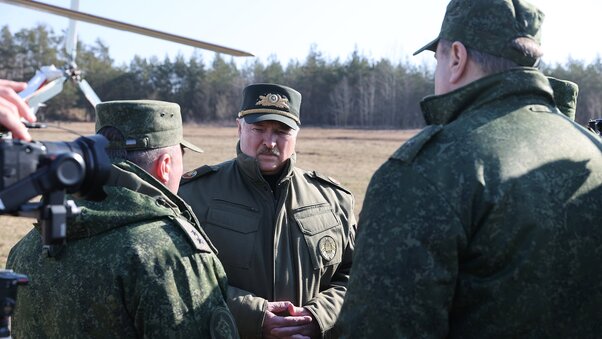National cleanup day
- 18
- 7:19
Belarusian President Aleksandr Lukashenko took part in an apple orchard planting in his hometown as part of the national cleanup day on 20 April.
In total, the orchard consists of 411 apple trees. 186 trees have already been planted (93 of the Belorusskoye Sladkoe variety and 93 – Syabryna variety).
The remaining 225 trees of five varieties were planted on the cleanup day.
"Schoolchildren will take care of the orchard and see the fruits of their labor. As I said, every school should have its own garden where kids can work with their hands. This will help them feel more grounded," the head of state said.
Aleksandr Lukashenko explained that earlier there were community allotments here. But now the village houses are mainly used as summer cottages, and the current owners and their children and grandchildren make use of their own vegetable gardens.
"It was a wasteland. We planted apple trees to keep the land in use," the President said.
One of the participants of the Presidential cleanup day was Igor Abramchik, the head of the Spartan-Agro farm in Molodechno District.
"Farmer, hard worker. By the way, he is not an agrarian by education," the head of state said as he introduced him to reporters.
"No, I am not. I am an engineer-economist. I graduated from the Belarusian State University of Informatics and Radioelectronics. But still I chose to work on the land," the farmer noted.
“An IT specialist,” Aleksandr Lukashenko said, asking whether the young man was from a village.
Igor indeed comes from a village and spent his primary school years in his home village.
“Being born in a village means your home land draws you back wherever you go,” the President said and asked how many hectares the farmer had.
“100 hectares. We are expanding little by little,” Igor Abramchik, who is engaged in horticulture, replied.
“We can give you a kolkhoz to develop,” Aleksandr Lukashenko said. “I advise you to select a good farm. The land is very good here.”
“I will be honest I have never been involved in horticulture before. When I became President, I started to look into details. We import apples, especially from Poland. His (the farmer's) apples are better than any Polish ones. The main thing is that they are more organic. He knows very well that if he markets something of poor quality, he will be held responsible. The same is true about healthcare and education. If surgeons take a scalpel in their hands, they know that they have to do their best. They bear huge responsivity.”








































